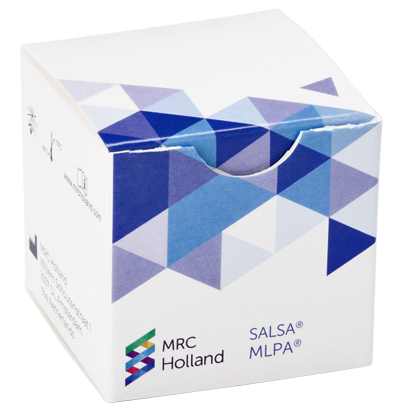P088 Oligodendroglioma 1p-19q

SALSA MLPA Probemix P088 Oligodendroglioma 1p-19q detects the co-deletion of chromosome arms 1p and 19q, deletions of the CDKN2A and CDKN2B genes, and the most common somatic point mutations in IDH1 and IDH2.

Contents: 59 MLPA probes including 19 probes for chromosomal arm 1p, 3 flanking probes for 1q, 12 probes for 19q, 2 flanking probes for 19p, 3 probes for CDKN2A, 2 probes for CDKN2B and 4 probes for point mutations in IDH1 (p.R132H and p.R132C) and IDH2 (p.R172K and p.R172M).

Tissue: genomic DNA isolated from fresh-frozen or formalin-fixed paraffin-embedded (FFPE) human glioma.

Application: oligodendroglioma.

IVDD certified for in vitro diagnostic (IVD) use.

